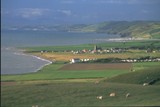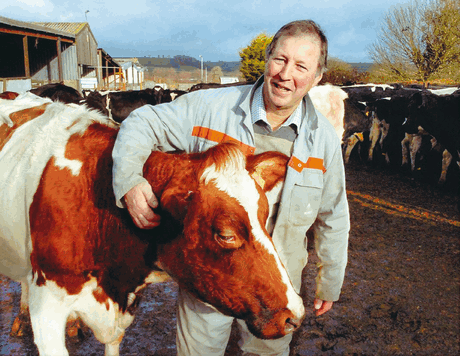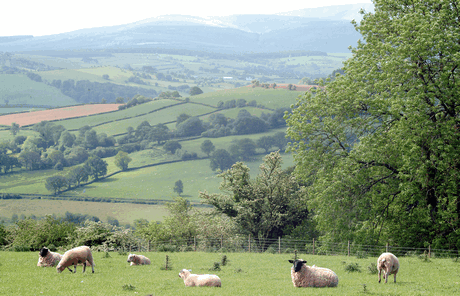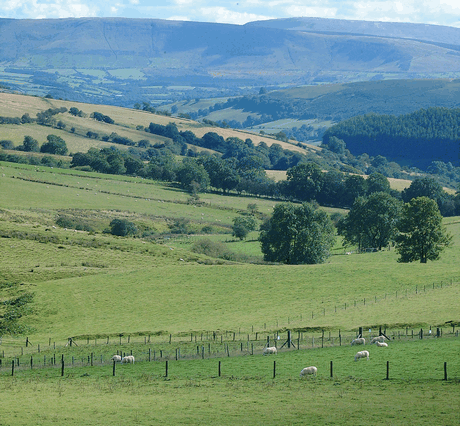News analysis: Has devolution helped Welsh farming?

Ten years on, it seems devolution has helped, rather than hindered, Welsh farming. Industry representatives value the ready ear of Welsh Assembly government ministers, while farmers concede, albeit grudgingly, that they are not as badly served as their English counterparts.
Farming in Wales, with its 80% Less Favoured Area land, can never be a soft option. The terrain and the climate are often difficult and recent years’ disease problems have tested the firmest resolve.
So it is a relief to know that with a farmer’s daughter, Elin Jones, as minister for rural affairs and a majority of Assembly members closely linked to the rural heartland, there is an understanding of the issues. The coalition administration is certainly beneficial to the countryside.
Finances
But there are still difficulties and a big problem is that the Welsh Assembly government has little control over its own finances, particularly when it comes to animal health.
There is increasing frustration over the lack of transparency within the DEFRA budget and the fact that the government has had to “scratch around” to fund its TB policy is one example.

Devolution has seen big improvements across five key areas, believes NFU Cymru president Dai Davies
Nevertheless, the decision to adopt a “holistic” approach to eradicating TB is one of the “Big Five” areas in which NFU Cymru president Dai Davies feels a devolved government has resulted in an improvement.
Another area is the decision to value TB reactors on an individual basis, rather than the average, tabular basis adopted in England.
For Mr Davies, the decision means that on the 40 or so reactors he has lost over the last 10 years, he has received the price he feels they were worth.
Then there was the decision to retain the Tir Mynydd hill farm payments and the £14m of compensation for farmers in the Less Favoured Areas following the foot-and-mouth difficulties last winter.
Nitrate vulnerable zones are a burden for the individuals affected, but confined to 3% of farmland in Wales, as opposed to 70% in England.
“It’s the access to ministers that we so value,” he added. “We can get access within a week and historically have seen a willingness on the part of ministers to engage with us in debate.
“It’s not to say that they give in on every occasion. But historically we have seen a willingness to discuss our problems and that is a great benefit.”

Claiming that it’s the “only farming union to proactively support Welsh devolution”, the Farmers Union of Wales says time has shown this to have been the right position – especially now that animal health issues are devolved. And the organisation praises the political maturity which has forced Assembly members from across the political spectrum to work together on matters of national interest, with the recent majority vote supporting an holistic approach to TB a crucial example.
“Devolution has allowed us better access to and consultation with politicians and decision makers,” says president Gareth Vaughan. “Of course, the industry still has a seemingly endless stream of problems to tackle, but when you have worked with DEFRA on issues you realise how lucky we are to have the Assembly.
“A key move for Wales was the adoption of the historic Single Payment model, which was advocated by the industry and has minimised disruption to the support system. The problems still being experienced in England because of their Single Payment model are not to be envied.”
CLA Wales has come to see that devolution suits rural Wales better than sceptics had feared. The unanswered questions are: Better than what, better at what cost, and better for how long?
Fears unfounded
CLA Wales director Julian Salmon concedes that earlier fears have proved largely unfounded, with the rural agenda given a very fair priority. However, he does not feel that the historic basis for Welsh Single Farm Payments is viable and the scheme will have to become fairer and more reasonable.
“The governance of Wales has been much more open to the needs of rural Wales in contrast to England and is envied as such,” he says.
“The downside is that we inherited the minority share of the pot we had before, the main share of the CAP having gone to the arable areas of England, while Wales is mostly livestock. This has limited the ability to deliver. Previously we were able to knock on doors in Westminster when there was a financial shortfall now we have to rely on the Welsh Assembly.”
Inevitably, it’s those farming along the border who are the harshest judges. Certainly most of the thousand-plus FUW members Susan Jones represents in Montgomery have mixed feelings, but generally they value the fact that they farm on the Welsh side of the border.
Those with land on either side can find themselves facing nightmarish problems, although the situation has improved since the Assembly appointed a dedicated officer to deal with cross-border problems.
“It has created big problems for cross-border farmers,” she says. “They’ve had great difficulty and I think there are some farmers who still haven’t resolved the issues of Single Payment from 2005.
“The Welsh payments have been resolved but certainly, where you have complicated businesses, there are some land issues that are still being disputed between the RPA and the farmer. They’re still having delays in their payments and whereas the majority of my farmers would have been paid in early December, cross-border people are waiting well into the New Year to receive payments.”
Richard Joyce farms just two miles from the border at Kington in England and milks 85 cows. He serves on the FUWs’ milk committee and says Wales still manages to protect its family farms.
The right way
“I feel basically that Wales is going the right way,” he says. “I am pleased for them and wish that England was doing something similar and that our CAP payments were more fairly distributed.
“We seem to have been forgotten on this side of the border. The Single Farm Payment system is moving against the family farm in favour of larger farms and institutional farms. We have been forced away from the historic basis to the hectarage basis.
“We haven’t got the hectares but we did have the stock. In west Herefordshire we have hill livestock farms that are certainly comparable, if not more severely disadvantaged and yet we are now at a financial disadvantage.”
Tom Till, land agent for the Powis Castle Estate, serves on the CLA’s Welsh Executive and is responsible for managing land and rural property in Mid-Wales and Shropshire. His concern is that the cost of administering the Assembly could be draining resources from the rural communities it purports to serve so well.
“Council taxes have gone up consistently ahead of inflation in Wales,” he says. “With the Assembly drawing an extra 12% as a result of property rebanding in 2005 – something England abandoned – there do not seem to be many tangible benefits which can be attributed directly to devolution.
“Many rural communities now face the loss of their schools, post offices and pubs and our planning system is slower than ever – where is the money going?”

Despite his misgivings, Mr Till says it is indisputable that Welsh Assembly ministers have a greater enthusiasm to support farmers than have their English counterparts. Meanwhile, rural affairs minister Elin Jones has learned to deal effectively with the problems thrown up by the foot-and-mouth crisis, bluetongue and TB.
“I’ve learned that I won’t please everyone all the time, but if I can prove to people that I’ll give everybody a hearing and whatever I do will always be with the over-riding interest of being of benefit to rural Wales,” she says.
Optimistic about Welsh farming’s future, she has tried to put food production at the heart of combating climate change and is proud to have introduced a £2m young farmers entrance scheme.
“There’s far less security about global food supplies because of competing markets and in Wales we need to be producing food,” she says.
“Welsh farmers should use this opportunity to consolidate and strengthen their farming practices.That’s why I’ve always been very keen to ensure we have young people coming into farming. The scheme shows that the government has a commitment to the future of the Welsh farming industry. But the profitability of the industry itself will be the big driver.”
